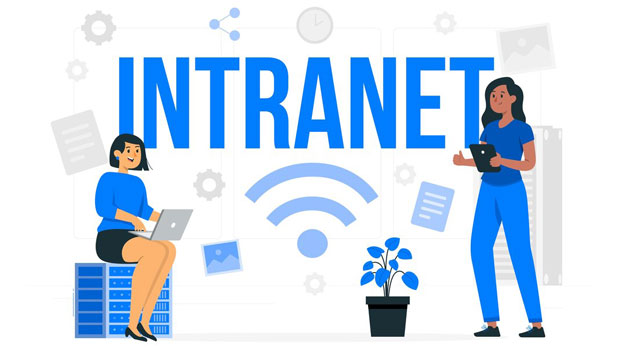Accessing restricted content has become a common challenge in today's digital age. Many websites and online services restrict access based on geographical location, user behavior, or even IP addresses. This has created hurdles for individuals and organizations trying to access specific resources. PYPROXY, a tool designed for online privacy and security, can play a pivotal role in bypassing these restrictions, allowing users to access the content they need without encountering barriers. It leverages proxy servers to mask the user’s real IP address, enabling secure and anonymous browsing across various platforms. Understanding Content Restrictions and Their ImpactContent restrictions occur due to various reasons such as legal regulations, regional limitations, or platform-specific policies. For example, some services may limit access to specific content based on the user's geographic location or IP address. Streaming platforms often block content in certain countries due to licensing agreements. Similarly, websites might restrict access to sensitive information or resources in certain regions due to government policies or compliance requirements.These restrictions can be highly inconvenient, preventing users from accessing valuable information, streaming media, or conducting research freely. Whether for work, education, or personal use, encountering these barriers can hamper productivity, limit access to entertainment, or prevent engagement with online communities.The Role of PyProxy in Overcoming RestrictionsPyProxy operates by routing internet traffic through proxy servers, which act as intermediaries between users and websites. By using a proxy server, the user’s real IP address is hidden, and the request to access restricted content appears to come from the proxy server’s IP address. This method helps users bypass geographical, network, or content-based restrictions.One of the main advantages of PyProxy is its ability to offer anonymity. By hiding the user's real IP address, it helps ensure that online activity remains private. This is especially valuable in environments where privacy concerns are high, such as when accessing sensitive information, streaming content, or engaging in research on restricted websites. The proxy server masks the origin of the request, making it harder for external parties to track user behavior.How PyProxy Works to Access Geo-Restricted ContentGeo-restricted content is one of the most common forms of content limitation encountered by users. Many streaming services, such as video platforms or music streaming sites, impose geographical restrictions to comply with licensing agreements or regional laws. In such cases, PyProxy helps by masking the user’s actual location and replacing it with an IP address from a region where the content is accessible.For instance, if a user is located in a country where a particular streaming service’s content is unavailable, PyProxy can make it appear as though the user is browsing from a location where the content is not restricted. This allows users to access a broader range of media and services that would otherwise be unavailable to them. Additionally, PyProxy can allow access to region-specific deals, offers, and websites that are tailored for certain countries or territories.Enhancing Online Security and PrivacyApart from helping users access restricted content, PyProxy also enhances online security and privacy. By routing traffic through a proxy server, PyProxy makes it difficult for third parties to monitor or track user activities. This feature is particularly valuable for users who are concerned about online surveillance or who wish to protect sensitive data from cyber threats.When browsing without a proxy, websites and online services can track user activity using cookies and IP addresses. This data can be used for targeted advertising, profiling, or even sold to third-party companies. With PyProxy, users’ IP addresses remain hidden, making it difficult for websites to track and collect personal data. Additionally, some proxy servers provide encryption, which further secures the browsing experience and prevents unauthorized access to data.Accessing Restricted Research and Educational ResourcesFor students, researchers, and academics, accessing specific educational resources or research papers is often hindered by content restrictions. Many online academic journals, databases, and educational platforms have regional access policies or require institutional subscriptions to access full content. These restrictions can limit access to valuable information that is necessary for academic progress and professional development.PyProxy can help users bypass these limitations by accessing the desired academic resources through servers located in regions that are not subject to the same restrictions. For instance, if a particular research paper is only accessible to users in North America, PyProxy can allow users from other parts of the world to access it by routing their connection through a proxy server in North America. This not only helps researchers but also provides students with the ability to access global educational resources.How to Use PyProxy for Maximum EfficiencyTo maximize the benefits of PyProxy, users should follow a few key steps to ensure that their browsing experience is efficient and secure. First, users must configure the tool by selecting a reliable proxy server that is capable of handling their desired online activities, such as streaming, browsing, or accessing specific resources.Secondly, users should ensure they choose proxy servers that provide adequate speed and reliability. Since proxy servers act as intermediaries between the user and the website, the server's speed directly impacts the browsing experience. Choosing high-performance proxy servers will ensure that users experience minimal latency when accessing restricted content.Lastly, users should also make sure to use encryption options provided by PyProxy, if available. This will add an additional layer of security and privacy, ensuring that their online activities remain protected from hackers or unauthorized entities.The Ethical Considerations of Using PyProxyWhile PyProxy offers many benefits in terms of accessing restricted content and enhancing privacy, users must also be aware of the ethical considerations associated with using proxy servers. In some cases, bypassing geographical or content restrictions could violate terms of service or licensing agreements established by content providers.It is essential for users to consider the legal and ethical implications of using tools like PyProxy. While accessing content for personal use or research is typically harmless, circumventing restrictions for commercial purposes or distributing content illegally can lead to consequences. Users should always respect the terms of service of the platforms they are accessing and use proxy services responsibly.ConclusionIn conclusion, PyProxy serves as a powerful tool for overcoming content restrictions, enhancing online privacy, and ensuring secure browsing. By masking users' real IP addresses and routing traffic through proxy servers, it helps bypass geographical, network, and content limitations, allowing access to a broader range of services and resources. Whether for streaming, research, or everyday browsing, PyProxy provides an efficient way to navigate online barriers. However, users must be mindful of the legal and ethical aspects of using proxy services, ensuring they adhere to relevant guidelines while enjoying the benefits of unrestricted access.
Apr 03, 2025
![arrow]()




























































